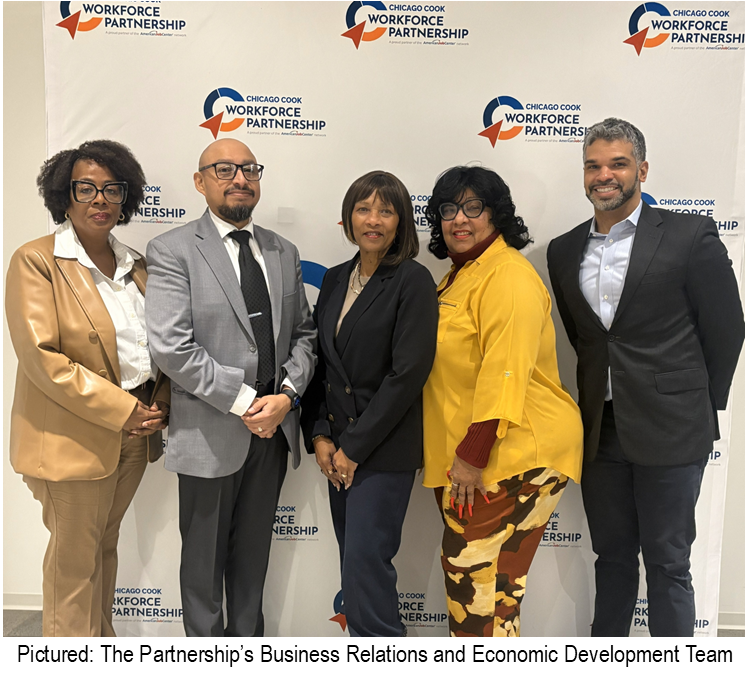You already understand the impact of connecting people to the skills and opportunities they need to succeed. Every day, you work hard to align employer needs with training, education, and credentialing pathways that help individuals step into, or back into, the workforce. But if we truly want people to thrive, we need to look beyond programs. What really fuels lasting success? It’s not just opportunity, it’s motivation.
Beyond the Basics: The Real Impact of Workforce Development
Yes, workforce development drives economic growth. It helps businesses find the talent they need and supports individuals in building meaningful careers. But if we focus only on filling jobs, we risk overlooking the most important part of the process—the person sitting in front of us.
The impact we aim for, employment in the second and fourth quarters, higher earnings, credential completion, don’t happen in isolation. These indicators reflect something bigger: whether a person felt seen, supported, and inspired to keep going. That’s why the most impactful programs combine skill-building with employer engagement, wraparound services, and, most importantly, a personal connection to the individual’s purpose and potential.
Motivation Starts With Meaning
At the heart of every successful career journey is a person who believes in what they’re doing and believes in themselves. That’s why your role is about more than providing resources. It’s about helping someone see why this matters.
When you take the time to learn someone’s unique story, their strengths, struggles, dreams, and doubts, you build more than a career plan. You build trust and with trust comes motivation.
By connecting training opportunities directly to a person’s goals and real labor market demands, you help them see the “why” behind the work. That sense of purpose keeps them engaged when the process gets tough—and it will get tough. Life happens. Setbacks occur. But when individuals understand how their effort leads to something meaningful, they’re more likely to keep going.
The Role of Intrinsic Motivation
You can design the most comprehensive, data-informed, and well-supported plan, but it won’t go anywhere without buy-in from the person you're serving. Success isn’t handed out; it’s built together.
That’s why intrinsic motivation—the inner drive to learn, grow, and succeed—matters so much. And the good news? You can help spark it.
By believing in someone’s potential, offering encouragement, and celebrating progress (even the small wins), you can help individuals build confidence and ownership over their journey. When they start to believe that change is possible, and that they are capable, they’re more likely to stay committed.
Fostering a growth mindset is key here. Remind individuals that skills can be learned, strengths can evolve, and setbacks are part of the process, not a sign to give up. This mindset shift transforms how people respond to challenges and empowers them to keep moving forward.
Supporting the Whole Person
We can’t talk about motivation without talking about well-being.
Today’s workplaces demand more than technical know-how. Communication, collaboration, adaptability, and emotional intelligence are just as important. These “soft skills” are rooted in self-awareness, understanding your own thoughts, emotions, and how you relate to others. That’s why helping individuals invest in their own well-being and personal development is not a “nice to have,” it’s essential.
Tools like personality and strength assessments, and coaching help individuals better understand themselves and the people around them. This self-awareness leads to greater resilience, improved relationships, and more effective teamwork, all things that employers value in today’s dynamic, human focused work environments.
How You Can Make It Happen
The Foundation for Talent Transformation offers free, research-backed tools to support this journey. These quick assessments help individuals build emotional intelligence, interpersonal skills, and self-knowledge - all foundational to long-term success. By incorporating these kinds of resources into your programs, you’re not just preparing people for jobs. You’re preparing them for life, with skills they can carry into any workplace, any industry, and any future they choose to create.
Takeaways
As a workforce development professional, you’re more than a coach or coordinator. You’re a catalyst for change. When you take the time to foster intrinsic motivation, support well-being, and encourage self-development, you help individuals become more than job-ready. You help them become confident, empowering them to be powerful contributors for their workplaces, families and neighborhoods.
So, keep showing up. Keep connecting. Keep believing in what’s possible, because your belief might be the spark that changes everything.






